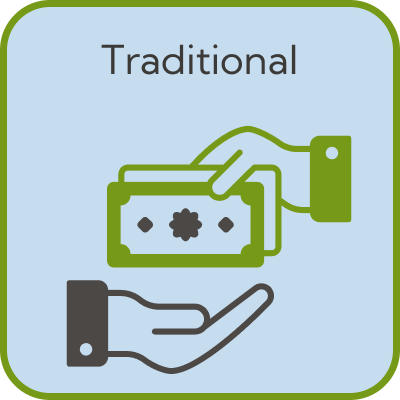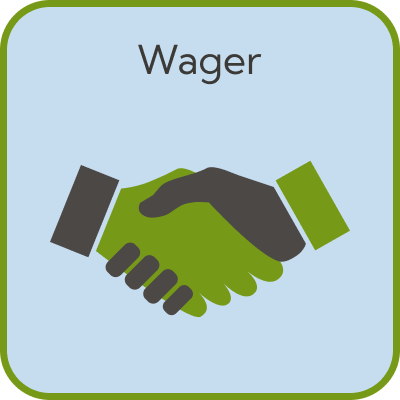Fundraise by participating in Self-organised DIY musical instrument challenge!
Self-organised DIY musical instrument challenge
Imagine creating melody while making a difference with a Self-organized DIY Musical Instrument Challenge. In this unique event, you’ll have the opportunity to craft your own musical instruments from everyday materials, and then perform a piece of music on the instruments you've created. This challenge is not just about building and playing; it's about encouraging creativity, sustainability, and community engagement, all while raising funds for a charitable cause.
Choosing this event for your charitable fundraising is a sterling idea for several reasons. First, it’s universal in its appeal — music and creativity resonate with almost everyone, making it easier to gain support and participation. What’s more, it requires minimal setup in terms of physical space and can even be conducted virtually. Participants can share their musical performances online, broadening the reach and impact of your fundraising efforts.
To organize a successful DIY Musical Instrument Challenge, start by deciding on the charity you wish to support. Set a clear fundraising goal and create a timeline for your challenge. Next, spread the word through social media, local communities, family, and friends. Provide participants with a list of ideas and resources on how they can make musical instruments at home from recycled materials. Encourage creativity by offering examples, but let participants know they are free to design anything from simple shakers to more complex string instruments.
As you plan your event, think about how to make it interactive and engaging. You could organize a live stream where participants showcase their handmade instruments and perform. Engage the audience by allowing them to vote for their favorite performances or instruments with their donations.
The most suitable Sponsivity challenge types for the DIY Musical Instrument Challenge would be the "Wager Challenge" and the "Challenge Chain Model." The Wager Challenge can drive significant donations, as participants commit to more complex or entertaining performances when certain fundraising thresholds are met. Imagine setting a goal where, if reached, a group of participants will come together to perform a concert with their DIY instruments. Meanwhile, the Challenge Chain model is ideal for encouraging participants to challenge friends to join in, creating a viral effect. Each new participant could trigger a fixed donation amount, leading to exponential growth in both reach and funds raised.
With creativity at its core, this event not only raises money but also brings joy and a sense of achievement to all those who partake. Get ready to tune into generosity with the DIY Musical Instrument Challenge.

Sponsivity offers you several ways to raise for Self-organised DIY musical instrument challenge


🧠 Mental Challenge – Pushing Limits for a Good Cause
Mental challenges test focus, resilience, and determination, making them a unique and engaging way to fundraise. These challenges often involve problem-solving, endurance under pressure, or personal restrictions, such as memory feats, puzzle marathons, or digital detoxes. Fundraising through mental challenges allows participants to showcase their mental strength and discipline, inspiring supporters to donate.
Why Mental Challenges Work for Fundraising:
- Highly Inclusive: Unlike physical challenges, mental challenges can be attempted by anyone, regardless of fitness level.
- Great for Social Engagement: Challenges like chess marathons, escape room events, or language-learning goals are easy to share and track online.
- Endurance & Dedication: Tasks that test patience and willpower—like 24-hour challenges—demonstrate commitment, motivating donors to give.
- Unique & Entertaining: Creative challenges stand out, making them highly shareable on social media and drawing attention to the cause.
Examples of Mental Challenge-Based Fundraisers:
- Memory Challenge: “I’m memorizing 500 digits of Pi—sponsor me to support dementia research!”
- Endurance Puzzle Challenge: “Help me complete 10,000 Sudoku puzzles in a month for charity!”
- No-Talking or Digital Detox Challenge: “Support my 48-hour silent retreat—every donation helps my cause!”
Mental challenges showcase creativity, discipline, and perseverance, making them a fun and inspiring way to raise money while pushing personal limits.
Set bespoke rewards that suit mental challenge
- Join me in my challenge for 1 day
- Get defeated by me at chess online during the challenge
📅 Self-Organised – Fundraising on Your Terms
Self-organised fundraising challenges put you in control, allowing fundraisers to create a challenge that’s unique, personal, and tailored to their passions. Unlike organised events, self-organised challenges offer complete flexibility—whether it’s a solo endurance test, a creative personal challenge, or a community-driven activity.
Why Self-Organised Challenges Work for Fundraising:
- Full Flexibility: Choose the activity, location, and timing that works best for you, making fundraising accessible and achievable.
- Personal & Meaningful: Custom challenges allow fundraisers to connect with their audience by choosing something significant to them.
- Low-Cost & Inclusive: Without the need for event entry fees or logistics, anyone can participate, making it easy to involve family, friends, or colleagues.
- Perfect for Challenge Chain & Wager Models: Self-organised challenges can inspire others to join in, spreading the impact through viral nominations.
Examples of Self-Organised Fundraisers:
- Personal Running Challenge: “I’ll run 5K every day for a month—support my journey!”
- DIY Fitness Marathon: “I’m doing 1,000 push-ups in a day—every donation pushes me further!”
- Creative Challenge: “I’ll cycle across the country dressed as a superhero—help me hit my fundraising goal!”
Self-organised challenges allow fundraisers to turn their creativity, passions, and dedication into real impact, making it a powerful and accessible way to raise money for a cause.
Set bespoke rewards that suit self-organised event
- Rename the challenge in your honour
- Bring home-baked cookies to the finishline